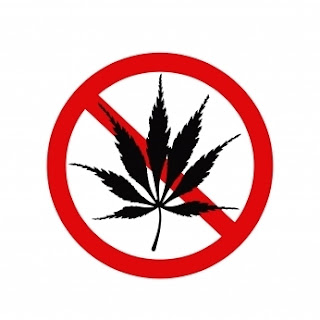
Proposition 19 would have done harm to those with addiction problems and would have had consequences for those who don't smoke.
If Proposition 19 had passed, Marijuana use would have significantly increased. In terms of personal health, weed is just as bad for you as alcohol, but the problem with marijuana is when people abuse the drug or become addicted. With any substance that alters a person’s mood, there is always a chance of either dependence or an addiction. According to an article written Dr. Kevin McCauley, published in the Texas Bar Journal in 2004, most people don’t realize that addiction is not a choice, but rather a disease. It is a neurological disorder that is either passed on genetically or can be developed later in life.
Now when it comes to drugs, even though Marijuana isn’t anywhere nearly as addictive as cocaine or heroin, it still is addictive. According to Raymond Goldberg’s novel, Clashing Views in Drugs and Society written in 2008, about 35% of people who smoke marijuana will either abuse the drug or become addicted. Another problem with smoking marijuana is the loss of brain cells that occur. Whether you are a casual user or smoke regularly, smoking marijuana can cause serious health risks.
Ironically some of the most outspoken proponents of Prop 19 were owners of current medical marijuana dispensaries. According to an article in The East Bay Express written by David Downs, Philip Morris, one of the biggest manufactures of cigarettes in the world, had already purchased 400 acres of land in Northern California anticipating the passage of Prop 19. Philip Morris planned to mass produce and flood the market with the Marijuana they would have grown and they were planning on adding some of the same toxins they put in their cigarettes. They wanted to make the marijuana more addicting by reducing the levels of THC (the main ingredient). They would have done this so users would have had to buy more of the product. Even though it isn’t known exactly what specific toxins they planned on using, these are some of the ingredients in cigarettes: Carbon Monoxide which is found in exhaust fumes, Cyanhydric acid which was used in the gas chambers, and Methanol which is used as rocket fuel.
If Proposition 19 had passed, it would not only have effected our state’s economy, but it would also possibly have threatened our safety. Proponents of Prop 19 claimed that, “It is preserving the right for employers to maintain a drug-free workplace.” However, according to an article in The Contra Costa Times written by Josh Richman on July 18, 2010, this is not true. According to the California Chamber of Commerce, the facts are that Prop 19 would have created special rights for employees to possess marijuana on the job. This means that no company in California would have been able to meet federal drug-free workplace standards, which would have caused some companies to lose their qualification for federal contracts and many Californians to lose their job. California has one of the highest unemployment rates in the country, so we definitely could not have afforded to lose any more jobs.
Lastly, not only would Prop 19 have effected our economy, if it had passed it could have possibly lead to a higher crime rate in California. The passage of Prop 19 would have caused the price of Marijuana to significantly drop, which would have attracted a kind of “tourism” to our state. Drug dealers from other states and possibly other countries, would have come here to buy the marijuana cheap. With out of state drug dealers coming into our state, the possibility of a higher crime rate would certainly have been there.
Because of the harmful effects that marijuana can have, as well as the addictive nature of the drug Proposition 19 thankfully did not passed. It would have greatly affected those who don’t smoke marijuana with potential loss of jobs, hurting our economy, and the possible rise in crime.
An opinion piece like this should have a byline. The writing is clumsy, with lots of misused words and grammatical errors. For instance, I assume Goldberg's book is nonfiction, not a novel. Did you mean to say most outspoken opponents (not proponents) are dispensaries? Otherwise, why would it be ironic? Also, why the change in font from the previous post? When making an argument, you have to be very careful to not make mistakes, because they make you vulnerable.
ReplyDelete